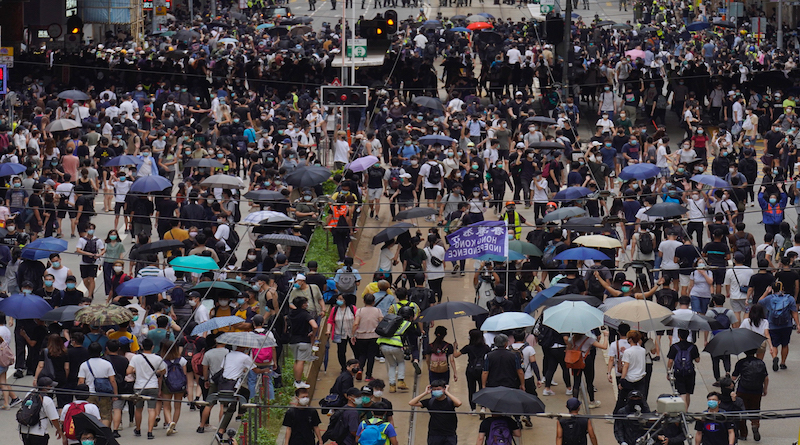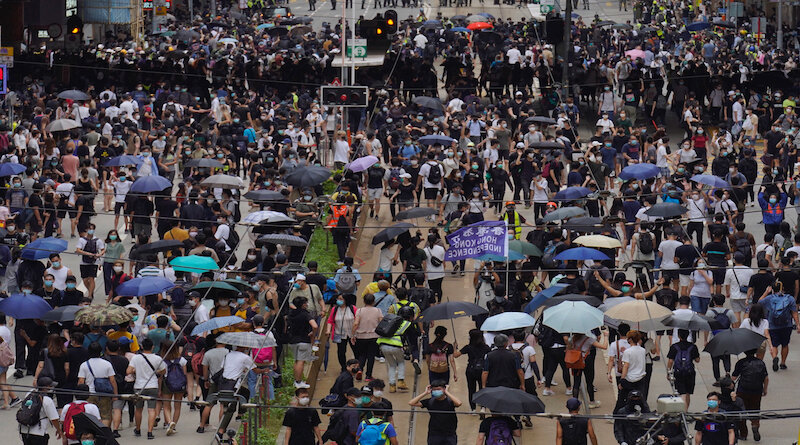Beijing passes controversial Hong Kong security law

DHARAMSALA, 30 June: China’s rubber-stamp parliament has passed the controversial national security law in Hong Kong “that critics fear will crush political freedoms and pave the way for China to cement its control over the semi-autonomous territory.”
The standing committee of China’s National People’s Congress has passed the national security law less than 40 days after Beijing proposed imposing an anti-sedition law on Hong Kong earlier today, the Guardian reported citing DAB, Hong Kong’s largest pro-Beijing party.
The passage of the bill has prompted prominent pro-democracy activist Joshua Wong to quit his Demosisto, a political party that lays its emphasis on self-reliance and insists for a legally binding referendum to allow voters to determine Hong Kong’s political future through self-determination.
“It marks the end of Hong Kong that the world knew before,” Wong said in a tweet objecting to the law.
Beijing is yet to release the full text of the law that criminalises secession, subversion, terrorism and collusion with foreign forces.
The report described the legislation as ” devastating blow to Hong Kong’s autonomy as promised under the ‘one country, two systems’ framework, the terms of the former British colony’s handover to Chinese control in 1997.”
Hong Kong’s chief executive, Carrie Lam has refused to comment over the development with the meeting in Beijing still going on.
“It is not appropriate for me to comment on any questions related to the national security law,” she was quoted as saying in the report.
Joshua Rosenzweig, the head of Amnesty International’s China Team has described the passage of the national security law as a painful moment for the people of Hong Kong that represents the greatest threat to human rights in the city’s recent history.
“From now on, China will have the power to impose its own laws on any criminal suspect it chooses,” he has said in the report.
While the legislation has been condemned internationally, authorities in Beijing and Hong Kong have insisted that it is aimed at a few “troublemakers” and will not affect rights and freedoms, nor investor interests.
Meanwhile, the UK is reported to have pledged Hong Kong residents eligible for a British National Overseas passport a “route to citizenship” while Taiwan has promised to help those fleeing to gain residency in Taiwan.
The US has on Monday announced that it will stop exporting sensitive military items to Hong Kong, as it moved to revoke the city’s special trade status as separate from China and that it would limit visas for current and former Chinese officials believed “responsible for, or complicit in, undermining Hong Kong’s high degree of autonomy,” the report concluded.





